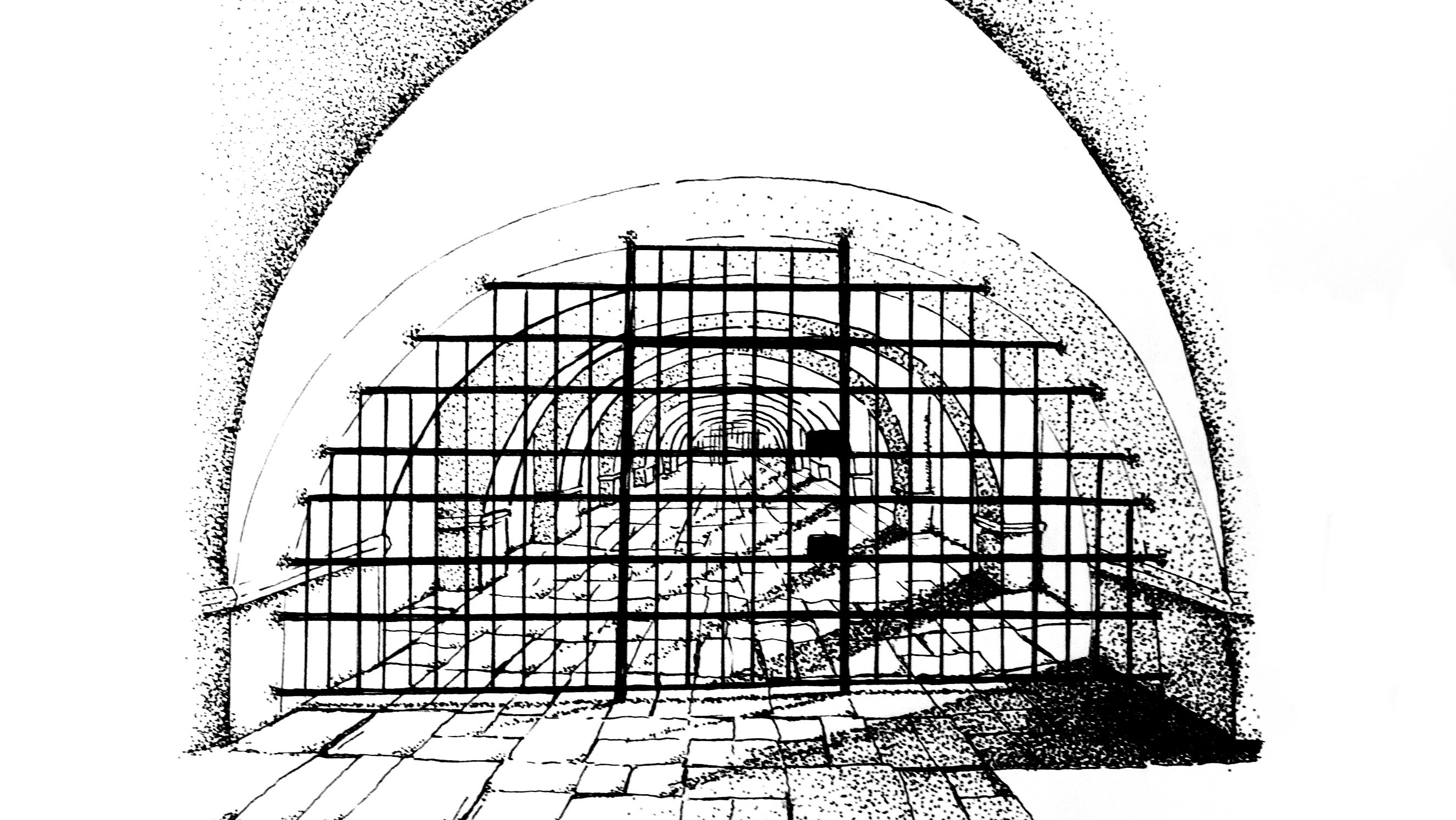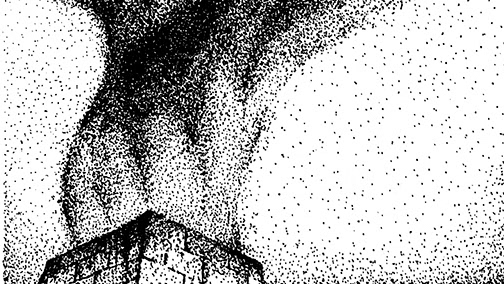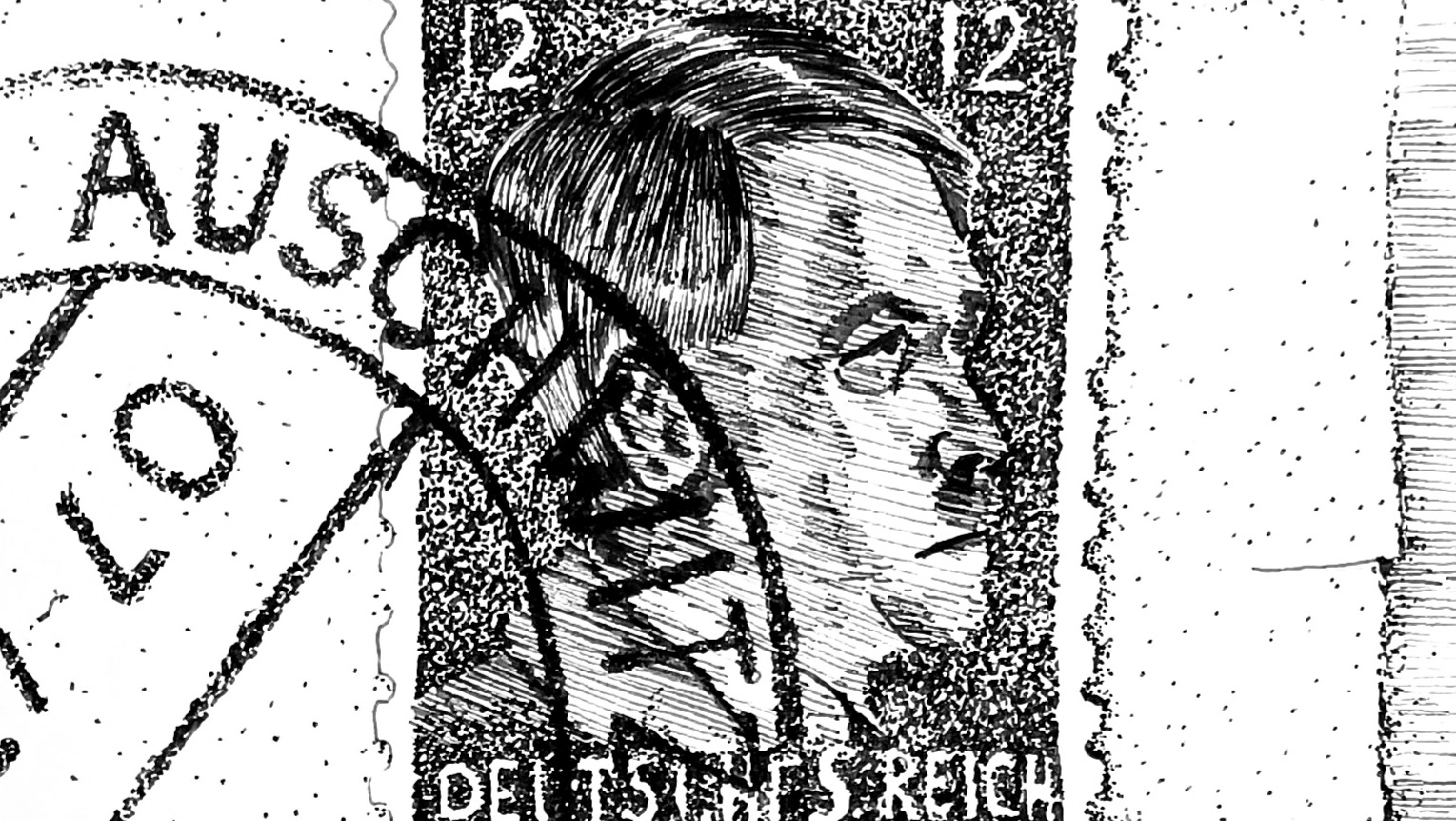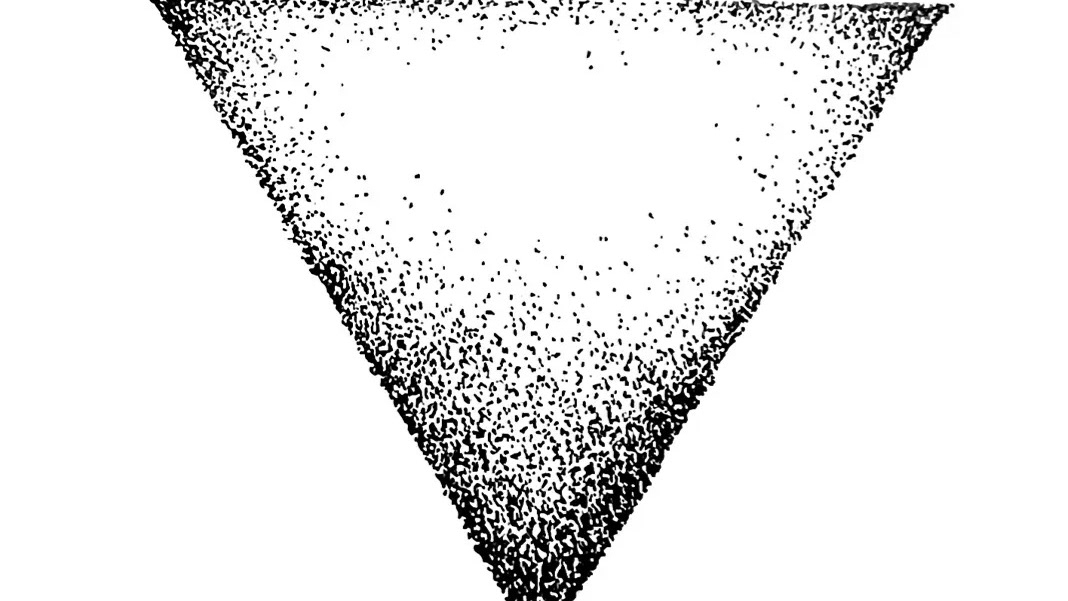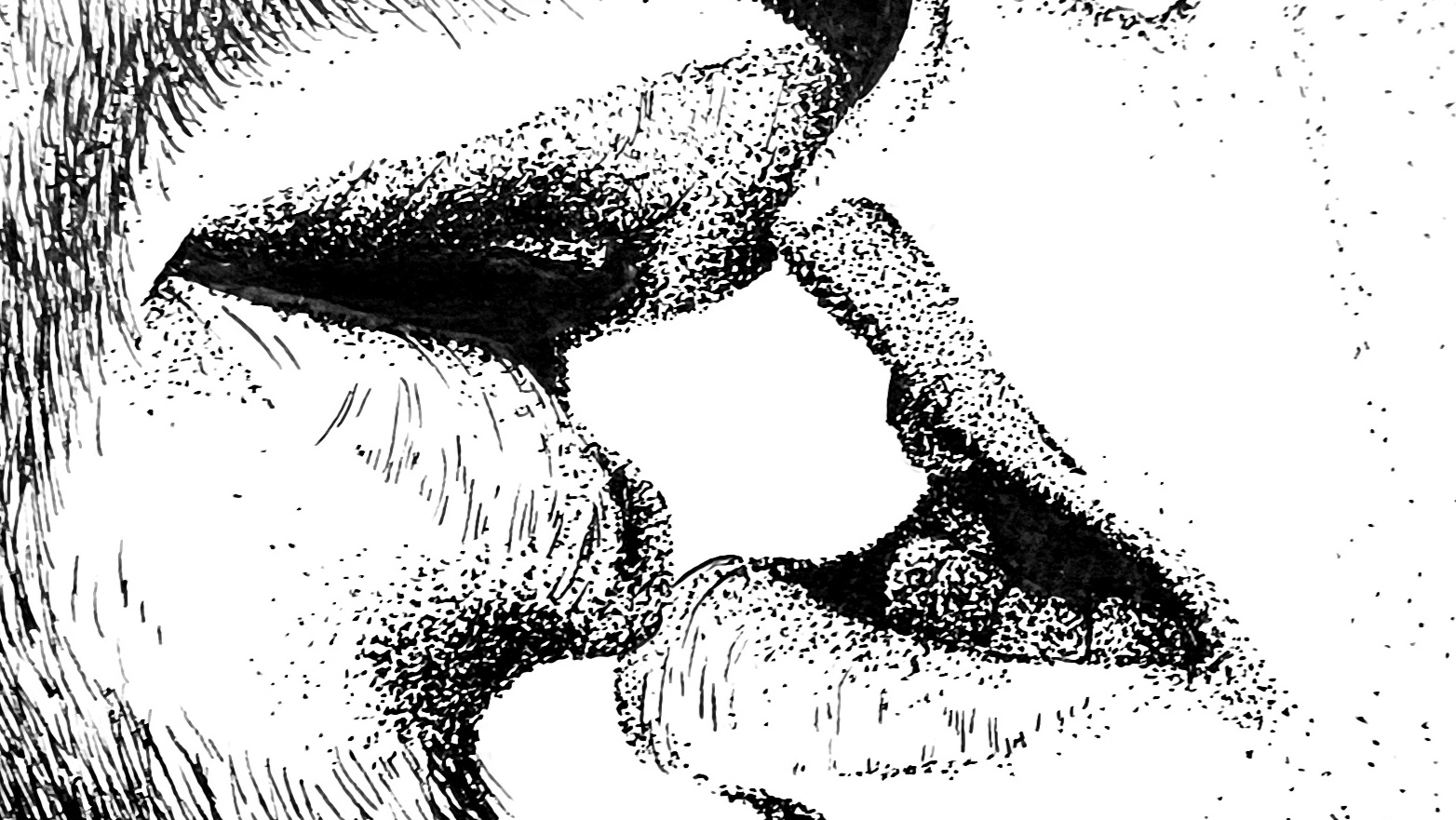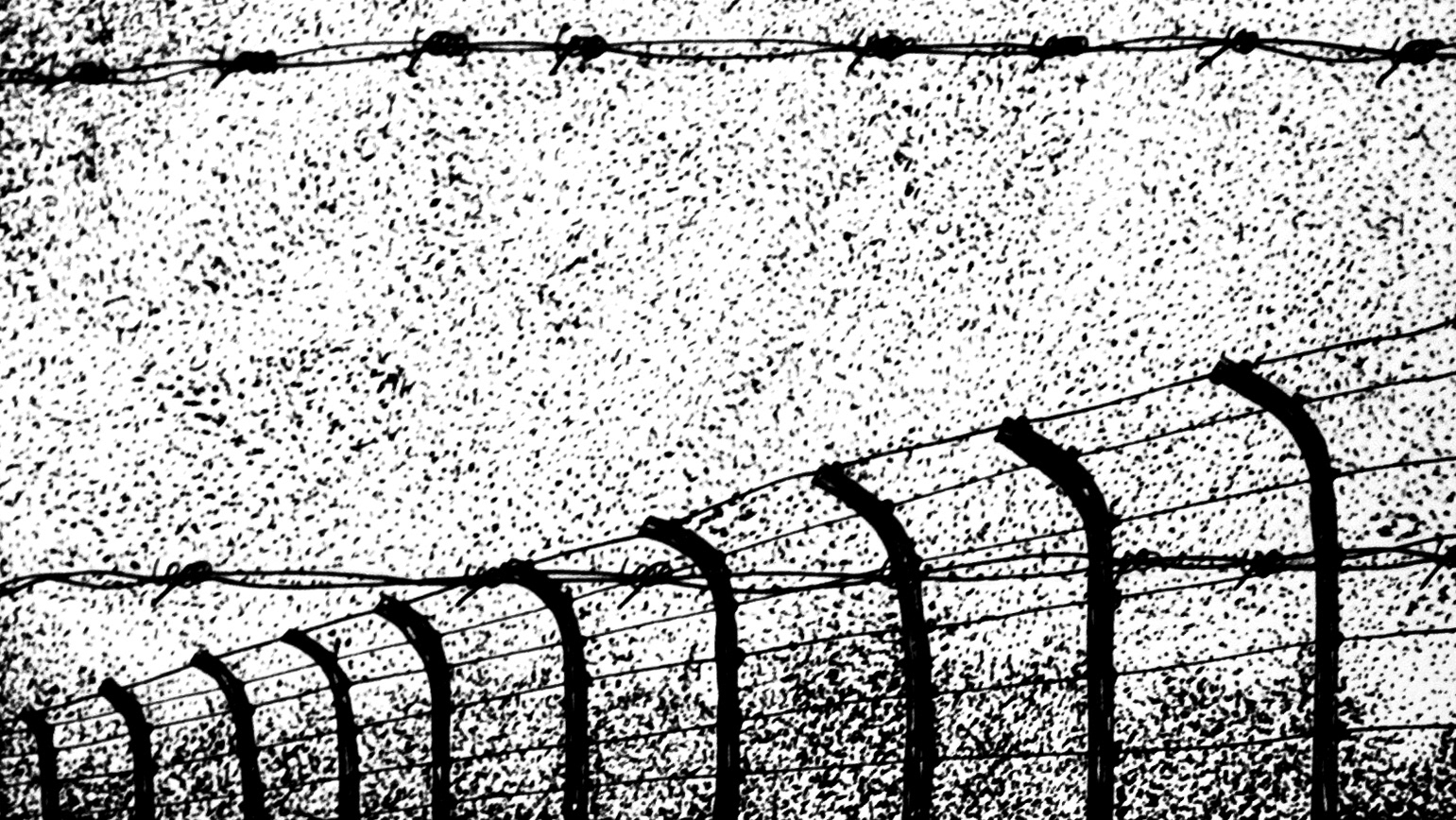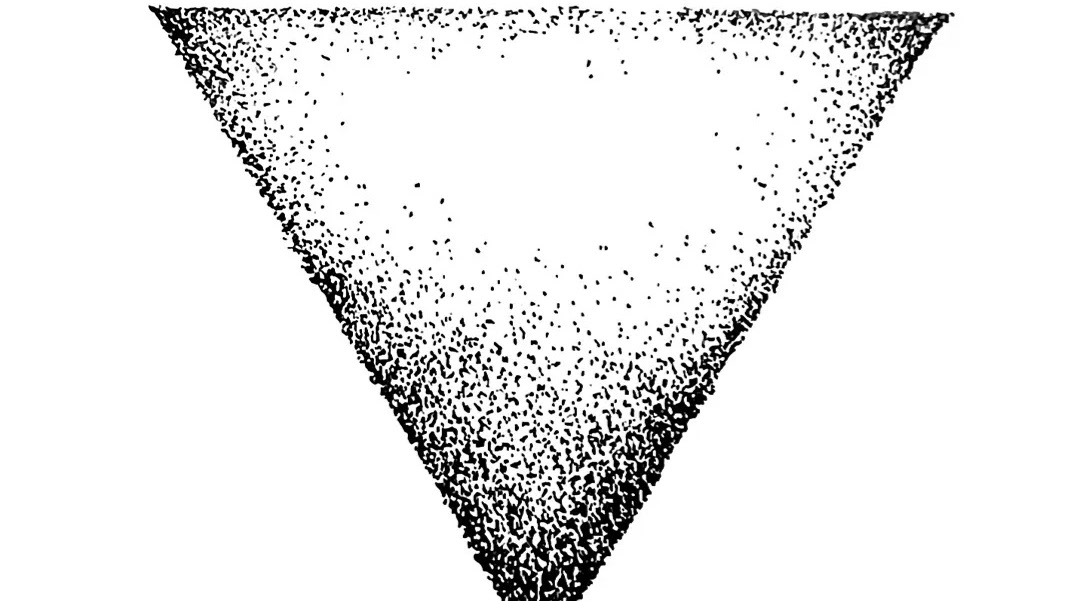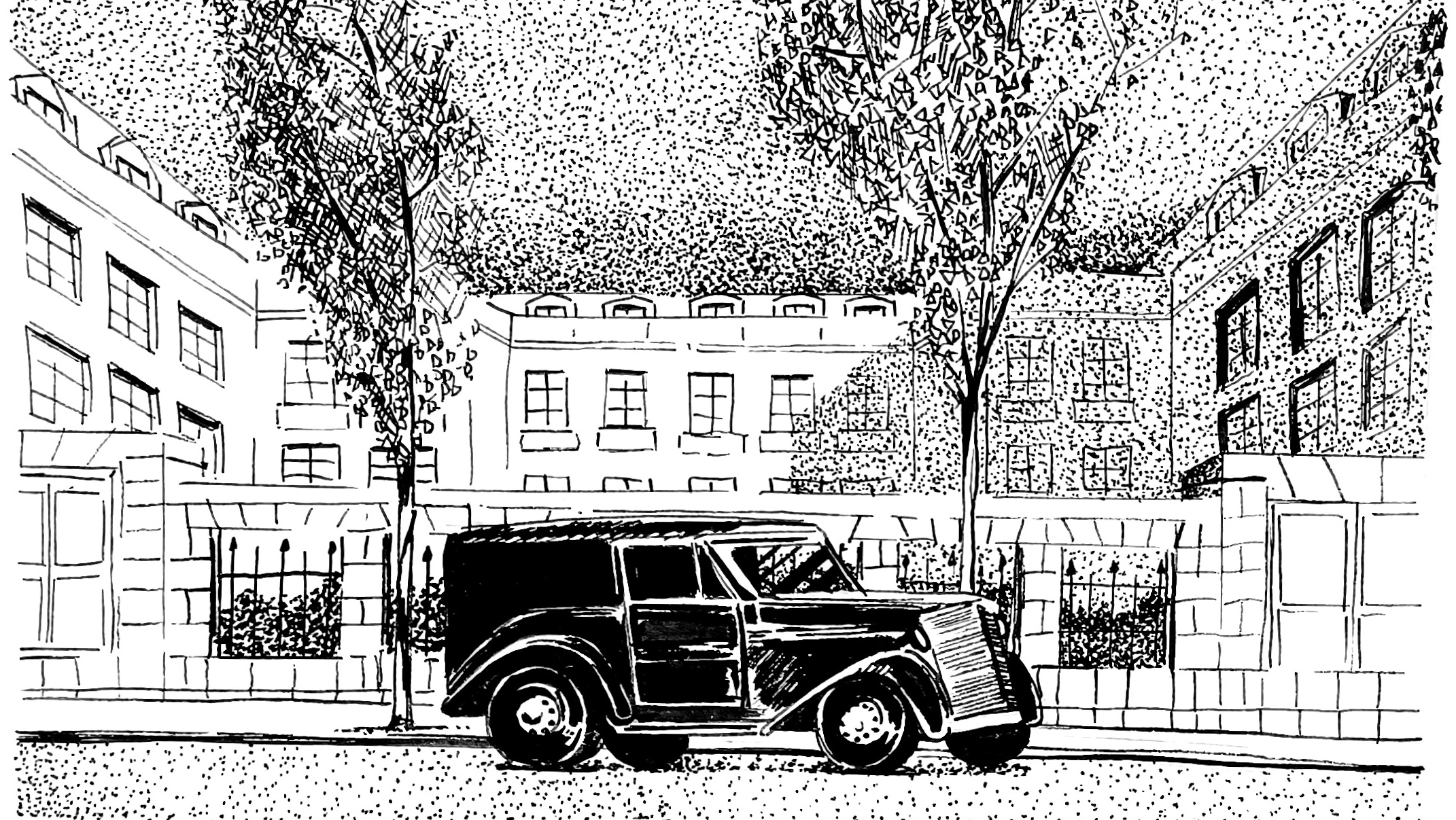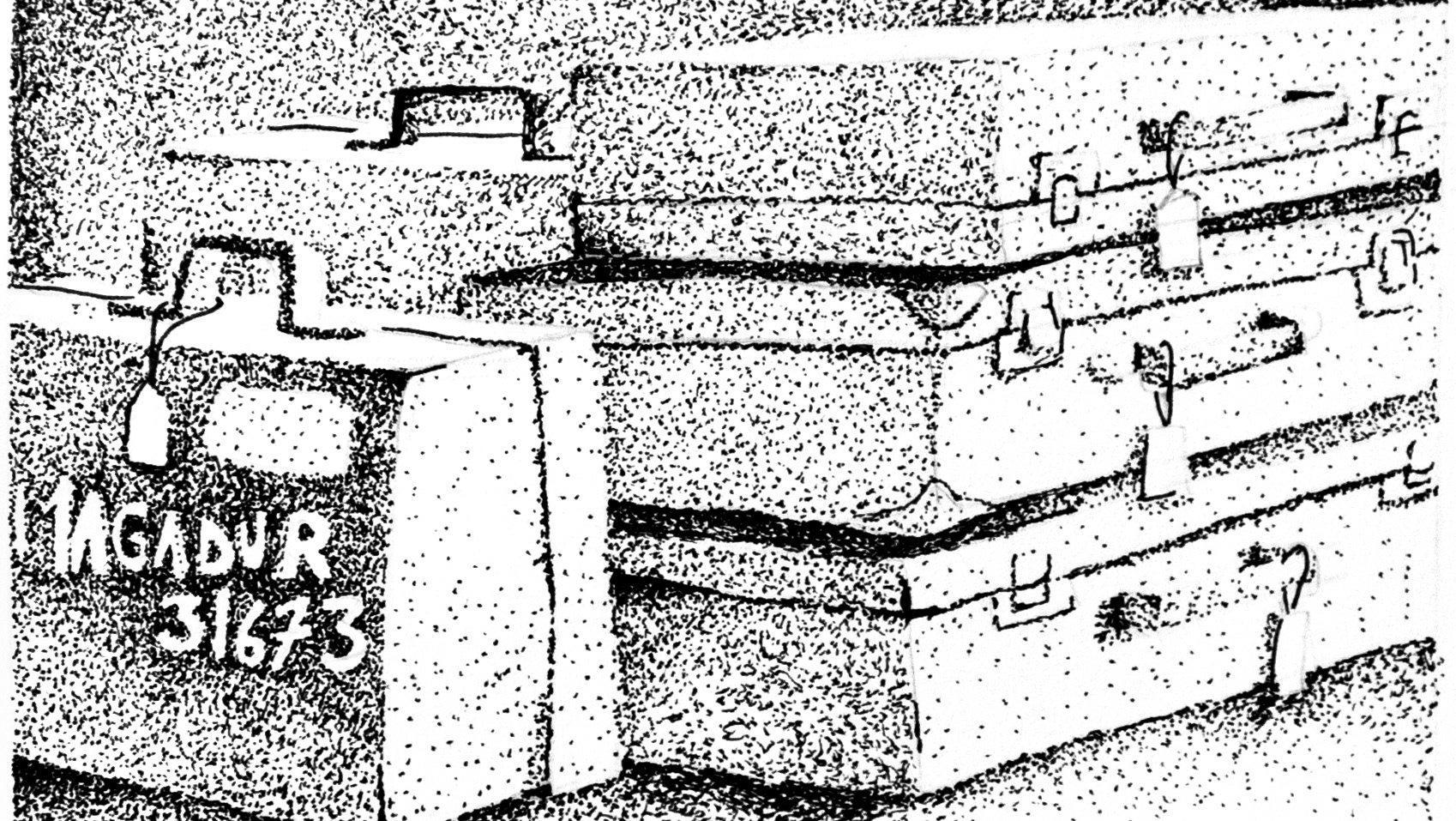Today is the first of January 1951, the trial of Ferdinand Werner begins. Emilia Kerisit is not here for the trial.
Back in 1942, Emilia Kerisit was a nurse living around Tours, south of Paris. She mostly took care of french soldiers, even after France lost the war against Germany. At the same time, she put in place a resistance network where she helped the transit of soldiers, Allies and jewish families to the free zone line. It was a well organised system, Emilia would present the people to smuggle to Henri Dupont, a priest, who would bring them to a cemetery to meet Germaine Maurice and her father Emile. They would gently bring them to the demarcation line, where they would meet another duo, Joseph Pouponneau and his wife, living on the other side.
The system worked for months, until Emilia crossed the path of Ferdinand Werner. He met with her, exhausted, bare feet. He was a soldier prisoner who managed to escape his camp and needed to cross the line. Emilia didn't hesitate, took care of him for a few days, then she met with the priest, the network would help him cross the line in a matter of days.
A week later, Emilia met with Ferdinand a second time. He was supposed to be away, in the french free zone, he explained he came back to help a jewish family.
She met him a third time, a few weeks later. This time, he was back because his wife was sick. He never told Emilia he had a wife before.
On the 10th of September 1942, the entire network was arrested by the gestapo. As for Emilia, she was arrested on the 23rd of September.
Germaine Maurice and Emilia Kerisit were both deported to Auschwitz. Germaine died in the first month, Emilia worked as a nurse. She took care of Marie-Claude as she caught typhus, Marie-Claude owed her her life. But working as a nurse didn't prevent Emilia from any type of violence, nor was she prevented from any diseases.
Emilia caught typhus, she was beaten by other prisoners because she caught it. She died on the 25th of May 1943.
Back to the present, in 1951, Ferdinand Werner is on trial. He was never a soldier, he was never a prisoner, he was a crook and a thief. The police was looking for him, he used Emilia's network in order to be provided food and a safe place to sleep. When he was arrested by the gestapo, he gave away all the names of the network, hoping to avoid prison.
Ferdinand avoided prison, yet he was deported to Sachsenhausen, just like everyone else. Joseph Pouponneau died in february 1943, Emile Maurice a few months later. The priest survived, so did Ferdinand.
Ferdinand disappeared for a few years, until he was arrested for theft in march 1949.
Today is the 6th of January, Ferdinand is condemned to forced labour, as well as being nationally degraded. Ferdinand is indeed guilty, he also pays for all those who helped deporting the entire group, he pays for the gestapo who arrested Emilia, the police officers who moved her from a prison to another, the administrators who put her and Germaine on a list of 230 women to deport to Auschwitz, for the women who beat Emilia to death in Auschwitz as she was lying on the ground, sick with typhus.
You can't put so many people in jail, the country needs to move on. Plus, De Gaulle said France won the war, there were mostly resistants and heroes, you can't have too many villains in a country of heroes.
Notes
Thank you for listening to this episode of 31000/45000, the story of 2 trains of french members of the resistance. My name is Matthieu Landour Engel.
This episode was about Emilia Kerisit and the trial of Ferdinand Werner.
As I mentioned in the previous episodes, trials in France were difficult. To put things simply, the country was hurt, confused. During the Second World War, in a matter of only years, France lost a war against Germany, changed regime, was divided in 2 zones with different laws, then the entire country was occupied by the german army, had pretty much the equivalent of a civil war as the country was being mibearatzd by the Allies, and the French Free forces, claiming to be another new government, until it was finally liberated. The liberation led to a reckoning, leading to the execution of maybe 10000 people and public humiliations all around the cost ntry, most notably the shaving of women accused of relations with the german authorities. And finally a new government was put in place, mezding to trials. Needless to say that this is a lot to happen for a country, a lot in a short amount of time. When De Gaulle rebuilt the country, he wished for France to be on the side of the Allies, he wished for the country to stand proud, just like he stood proud, and he did. Yet the Vichy regime collaborated, many citizen collaborated. At the end of the were many trials were organised, many were condemned, and soon after many of those condamnations were nullified. For example, Petain was condemned to the death penalty, later changed to life imprisonment, later changed to confinement. The condamnations for national degradation, which was a legally defined offense after the liberation, were mostly amnestied in 1953, and many condamnations to prison were commuted or amnestied.
Whether or not leniency was justified, it is easy to understand that, for those who had loved ones arrested, executed, or deported, it must have been devastating and considered a betrayal.
The cas of Ferdinand Werner was interesting in the sense that, had he not been caught for stealing, Ferdinand may have been roaming free for the rest of his life. Ferdinand was also a convenient person to accuse, he was not a member of the Vichy regime, he was a denounciator. He was condemned to national degradation and forced labour, it's easy to figure that his national degradation was cancelled 2 years later, and his forced labour punishment must not have lasted very long.
What is for sure, it's that De Gaulle, the french government and the citizen all wanted to move on from those dark years. Unfortunately, it is best to acknowledge the faults before moving on, and France may have moved on too quickly.
I have been trying to find Emilia Kerisit’s relatives, unfortunately, my research was unsuccessful. If by any chance, you know of someone related to her please let me know, I would be very pleased to get in touch and make sure the text I wrote doesn’t contain any errors.
My sources for this story mostly come from the book le convoi du 24 janvier by Charlotte Delbo, the nook le syndrome de Vichy by Henry Rousso, the website deportes-politiques-auschwitz.fr, memoire vive, the foundation for the memory of deportation website , the Maitron website, and the fantastic website auschwitz.org
Thank you very much for your attention, next episode will be about Charlotte Delbo and her book.
